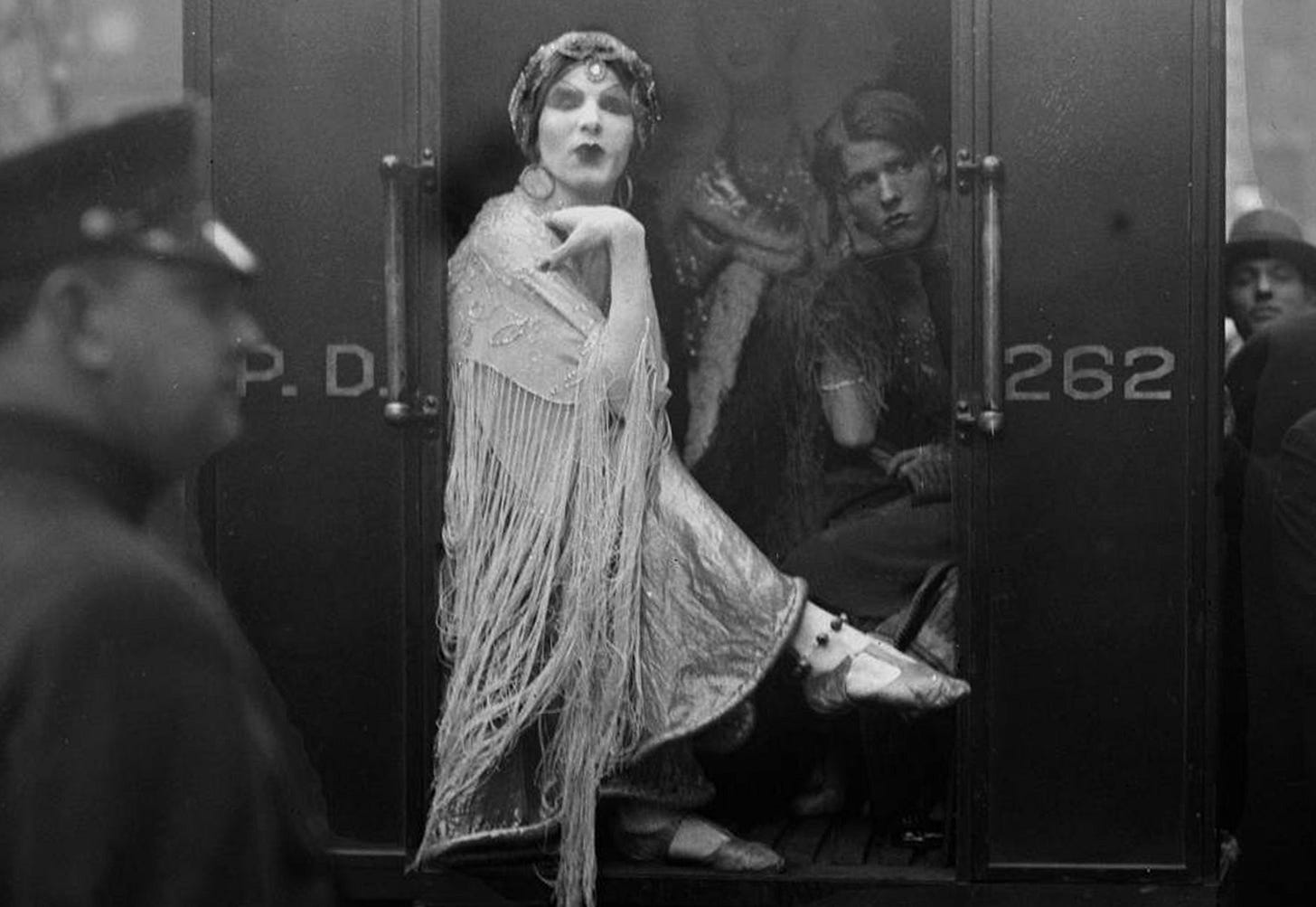
As this site has previously noted, the United States does not have an exemplary history with respect to free speech. In this regard, History, Rinse, & Repeat has also noted the unfolding scandal revealed by the so-called “Twitter Files,” internal Twitter communications that have, at the behest of Elon Musk, been disclosed by a group of independent journalists through a series of tweets and articles. While it is hardly surprising that Twitter determined, whether through outright suspensions or through the practice of shadow banning, to suppress conservative leaning writers and others critical of the Biden administration, including its handling of the Covid crisis, what has been surprising is the breadth and the depth of government involvement in the censorship at issue.
As has been reported in the press, Twitter employees coordinated their censorship efforts with the FBI on a weekly basis, bureaucrats with .gov e-mail addresses had direct access to Twitter employees, and the FBI routinely flagged accounts to be censored even when Twitter employees could not find a basis in their own rules to do so.
As stunning as it is, the conduct revealed in the Twitter files does not represent the first instance where the government has worked hand-in-glove with a private actor to suppress free speech. One lesser known episode involved an entity whose impact on America, and that of its principal, far exceeds its fame or notoriety – the New York Society for the Suppression of Vice (“NYSSV” or the “Society’).
The Origins and Activity’s of The Society
The NYSSV was the brainchild of Anthony Comstock, together with others at the Young Men’s Christian Association. Comstock was the force behind the so-called Comstock Laws, federal and state statutes that addressed pornography and purported vice. The federal statute criminalized the publication or distribution, through the U.S. mails or otherwise, of obscene literature, contraceptives, abortifacients, or information related to such items.
The state laws were even more restrictive, banning in many instances the possession of obscene materials, contraceptives, or even information concerning contraceptives. The most famous of these statutes was that which was challenged in the landmark Supreme Court case Griswold v. Connecticut. For those wondering how the sale of contraceptives to married couples could still be illegal in 1965, the answer is Anthony Comstock.
Comstock and his allies founded the NYSSV in 1873, to separate the image of the YMCA from their activities. The Society was chartered by the New York state legislature that year pursuant to legislation whose objective was the “enforcement of the laws for the suppression of the trade in and circulation of obscene literature and illustration, advertisements, and articles of indecent and immoral use as it is or may be forbidden by the laws of the State of New York or of the United States." To further that objective, the legislature gave the Society the power of search, seizure, and arrest, and awarded it half of all fines levied in resulting cases. It was this police power that separated the NYSSV from other so-called preventive societies.
Comstock also succeeded in effecting passage of the federal bill noted above. To further the objectives of the federal legislation, Comstock was made a special agent of the Post Office three days after the bill’s passage. The police powers granted to Comstock and the NYSSV allowed them to execute search warrants, subpoena materials, seize materials, and bring about the arrest of purveyors of the offending materials.
The work of the NYSSV was remarkable for its scope and effectiveness. It targeted virtually every art form, including books, art pieces, plays, and burlesque shows. In addition, it attacked proponents of contraception, such as Margaret Sanger. In 1914, Comstock attempted to arrest Sanger for publishing pamphlets advocating birth control, but she had fled the country. Instead, he arrested Sanger’s husband, who was convicted and imprisoned.
Comstock also secured the conviction of another advocate of birth control, Ida Craddock, for distributing marriage manuals that were deemed to be obscene material. Craddock committed suicide the day before she was to serve her prison sentence. Her final article, published posthumously, directly blamed Comstock, who counted the number of suicides he had caused. Comstock also targeted proponents of women’s suffrage.
The work of the NYSSV continued apace after Comstock was removed as president of the Society and replaced by its Assistant Secretary, John S. Sumner. In 1916, the publisher of Theodore Dreiser’s novel, The Genius, voluntarily withdrew the book from publication merely at the request the Society after it declared the work to be “lewd” and “unfit to read.” The Society successfully shut down Mae West’s Broadway play, Sex, for which West spent ten days in jail. Most famously, the Society was successful in having James Joyce’s Ulysses declared to be obscene. As a result, the book was banned in the United States. Throughout the 1920s, as a result of the NYSSV’s action, the Post Office burned copies of the book. It was not until 1934 that the book became freely available in the U.S.
The Society Declines
Although the Society was successful in its fight against Joyce’s novel, the publicity arising from that case began to harden opposition to the Society’s activities. At the time, critics mocked the Society. One columnist for the New York Tribune scathingly wrote the Society’s president:
“Mr. Sumner seems incapable of appreciating anything so frivolous as a joke, but the joke of this particular prosecution is so unusually delightful that even he might see it and laugh at it himself. In brief, it is that nobody , not even the most radical literary Futurists has been able to make out what James Joyce is writing about in Ulysses. The thing is a novel evidently. So if Mr. Sumner is able to be shocked by it he deserves not only cheers from the pure of heart but the congratulations of every literary student.”
The criticism of the Society began to take its toll. The NYSSV endured several losing court cases. In 1932, Sumner was forced to pay $500 to a bookseller he falsely arrested for displaying a book on nudism in his store window. In 1933, the NYSSV failed in its efforts to have the novel, God's Little Acre, declared obscene.
In 1937, Elmer Rice, whose play, Street Scene, was awarded the Pulitzer Prize for drama, publicly denounced Sumner to his face during a discussion at the National Republican Club that was broadcast nationally over the radio. In his speech, Rice charged:
“Mr. John S. Sumner is a paid employee of the New York Society for the Suppression of Vice. Apparently, it is a lucrative job, because he has kept at it for many years. His job is dependent on his finding vice. If he doesn’t find any, his job ceases.”
By 1947, the NYSSV could still conduct a raid of Random House’s shipping room to seize copies of allegedly obscene books, but the number of publications that it seized was a fraction of what it had seized during its heyday. In 1950, Sumner chose to retire, and the Society dissolved.
The Society Is Reborn As Twitter
With the death of the Society, a space opened for similarly narrow-minded partisans who wished to use their power, and the power of the state, to stifle what they deemed to be illegitimate discourse. The lessons taught by the NYSSV appear to have been thoroughly learned by those controlling Twitter prior to its acquisition by Elon Musk.
Like the employees of the NYSSV, those of Twitter claimed to be entirely non-partisan. Like the NYSSV, Twitter employed its own private, arbitrary, and unregulated methods to censor information that furthered the goals of federal agencies, such as the CDC and the FBI, as well as those of similar-thinking politicians who wished simply to suppress politically damaging stories, such as the Hunter Biden laptop affair.
While Twitter did not have police power granted to the NYSSV, it nevertheless used the involvement of the FBI and other agencies as a cover to conceal its own agenda and to give a veneer of legitimacy to what were arbitrary decisions. Substitute the words “dangerous speech” for “vice,” and Elmer Rice’s criticism of John Sumner would be equally applicable to those who received a lucrative salary for regulating so-called “disinformation” -- their jobs were dependent upon finding “dangerous speech,” and if they did not find it, their jobs would cease.
It is hardly original to note that, as advocates of censorship, the prigs of yesteryear have been replaced by the bluenose progressive of today. Defenders of free speech, on both the left and the right, have made that case. Nor is it original to note that the tactics employed by Twitter mirror those employed by those who would employ censorship for their own ends. Many progressives would agree with the sentiment expressed by Mr. Sumner who, in reply to Mr. Rice in his national debate, stated: “We are assailed on all sides with the cry freedom of the press – freedom of expression. . . . We need less expression and more reticence.”
Despite their similarities, the NYSSV and Twitter differed in one significant respect – with Twitter, the government was the driving force behind the decision as to what was to be censored. More importantly, as with Hunter Biden’s laptop, the calculus for that decision was entirely political. One can imagine that Anthony Comstock and his successor, John Sumner, would have been awestruck if they could have wielded as much power on the public discourse as could the twenty-something employees of Twitter.





I'd forgotten all about this, and enjoyed the piece.